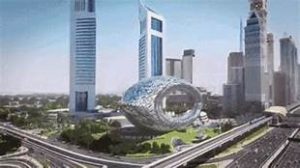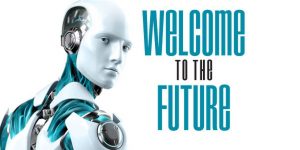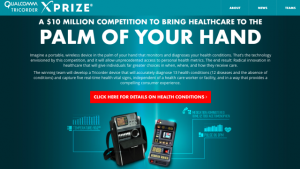I’ve always been fascinated by the future. How will it look? How will people live? How will they travel? How will medical advances change their lives? What will be the most significant changes?
Recently, I received an email that attempted to answer some of those questions. Here’s one peek at what is coming soon. No one can predict the future with 100 percent accuracy, but history tells us that a lot of this can and will happen.
Take a look and let me know what you think!
WELCOME TO TOMORROW
Auto Repair Shops will disappear. A gasoline engine has 20,000 individual parts. An electrical motor has 20. Electric cars are sold with lifetime guarantees and are only repaired by dealers. It takes only 10 minutes to remove and replace an electric motor.
Faulty electric motors are not repaired in the dealership but are sent to a regional repair shop that repairs them with robots. Your electric motor malfunction light goes on, so you drive up to what looks like a Jiffy-auto wash, and your car is towed through while you have a cup of coffee and out comes your car with a new electric motor!
Gas stations will go away. Parking meters will be replaced by meters that dispense electricity. Companies will install electrical recharging stations; in fact, they’ve already started. You can find them at select Dunkin’ Donuts locations.
Most (the smart) major auto manufacturers have already designated money to start building new plants that only produce electric cars.
Coal industries will mostly go away.
Gasoline/oil companies will begin to disappear. Drilling for oil will be reduced, but Natural Gas will continue to be used for many years for heating, etc. Homes will produce and store more electrical energy during the day than they use and will sell it back to the grid. It’s stored on the network and sent to industries that are high electricity users.
A baby of today will only see personal cars in museums.
In 1998, Kodak had 170,000 employees and sold 85% of all photo paper worldwide. Within just a few years, their business model disappeared, and they went bankrupt. Who would have thought of that ever happening?
What happened to Kodak will happen in a lot of industries in the next 5-10 years, ‘and most people don’t see it coming.
Did you think in 1998 that three years later, you would never take pictures on film again? With today’s smartphones, who even has a camera these days?
Yet digital cameras were invented in 1975. The first ones only had 10,000 pixels. So as with all new technologies, it was a disappointment for a time before it became superior and became mainstream in only a few short years.
It will now happen again (but much faster) with Artificial Intelligence, health, autonomous and electric cars, education, 3D printing, agriculture, and jobs.
Welcome to the “4th Industrial Revolution.”
Software has disrupted and will continue to disrupt most traditional industries in the next 5-10 years.
UBER is just a software tool. The company doesn’t own any cars, and is now the biggest taxi company in the world! Ask any taxi driver if they saw that coming.
Airbnb is now the biggest hotel company in the world, although it doesn’t own any properties. Ask Hilton Hotels if they saw that coming.
Artificial Intelligence: Computers will become exponentially better at understanding the world. This year, a computer beat the best Go player in the world, ten years earlier than expected.
In the USA, many young lawyers are having difficulty finding jobs. Because of IBM’s “Watson,” you can get legal advice within seconds, with 90% accuracy compared with 70% accuracy from human lawyers. So, if you study law, stop immediately. There will be 90% fewer lawyers in the future (what a thought!), only omniscient specialists will remain.
Facebook now has pattern recognition software that can recognize faces better than humans can. By 2030, computers will become more intelligent than humans.
Autonomous cars: In 2018, the first self-driving cars rolled out. In the next few years, the auto industry will change. You won’t want to own a car anymore as you will call a car with your smartphone, it will show up at your location and drive you to your destination. You will not need to park it, you will only pay for the distance driven, and you can be productive while driving. Very young children of today will never get a driver’s license and will never own a car.
This will change our cities, and because we will need 90% fewer cars, traffic gridlock will vanish, and we can transform former parking lots into parks.
About 1.2 million people die each year in car accidents worldwide. We now have one accident every 60,000 miles, with autonomous driving that will drop to 1 accident in 6 million miles. That will save a million lives plus worldwide each year.
Most traditional car companies will go bankrupt. Traditional car companies will try the evolutionary approach and build a better car, while tech companies (Tesla, Apple, Google) will make the revolutionary changes and build a computer on wheels.
Look at what Volvo is doing right now. No more internal combustions engines in their vehicles starting with the 2019 models, using all-electric or hybrid only, with the intent of phasing out hybrid models. Look at all the companies offering all-electric cars. That
was unheard of, only a few years ago.
Insurance companies will have problems because, without accidents, insurance premiums will drop, and the auto insurance business model will disappear.
The real estate market will change. Because if you can work while you commute, people will move farther away to live in a more beautiful or affordable neighborhood.
Electric cars will become mainstream about 2030. Cities will be less noisy because all new cars will run on electricity. Cities will have much cleaner air as well. (Can we start in Los Angeles, please?)
Power will become incredibly cheap and clean.
Solar production has been on an exponential curve for 30 years, but you can now see the burgeoning impact. And it’s just getting ramped up.
Fossil energy companies are desperately trying to limit access to the grid to prevent competition from home solar installations, but that cannot continue – technology will take care of that strategy.
Health: The Qualcomm Tricorder X prize was announced this year. Final Frontier Medical Devices, a small team led by engineer-turned ER doctor Basil Harris and his brother George (also an engineer), won the top prize of $2.6 million. Runner-up Dynamical Biomarkers Group will walk away with $1 million.
The medical device (called the “Tricorder” from Star Trek) works with your smartphone and accurately diagnoses 13 health conditions and captures five real-time health vital signs. It analyzes 54 bio-markers that will identify nearly any disease and allows consumers to receive direct medical care without seeing a healthcare professional at a clinic or hospital,
Some of these projections will be slower to happen, but significant changes are ahead for the human species.
WELCOME TO TOMORROW – It began arriving a few years ago, but most of us missed it.





